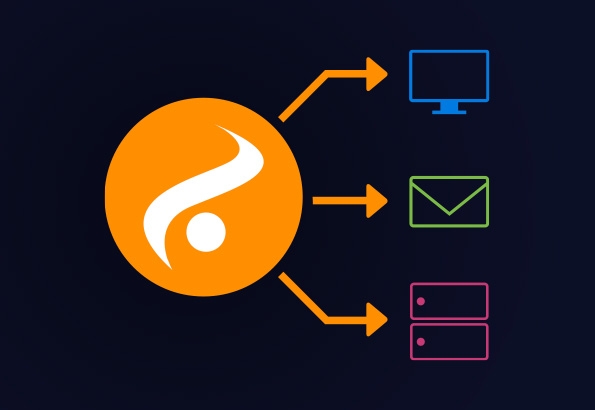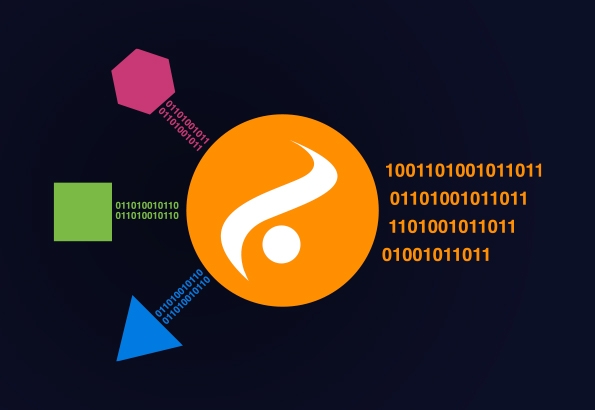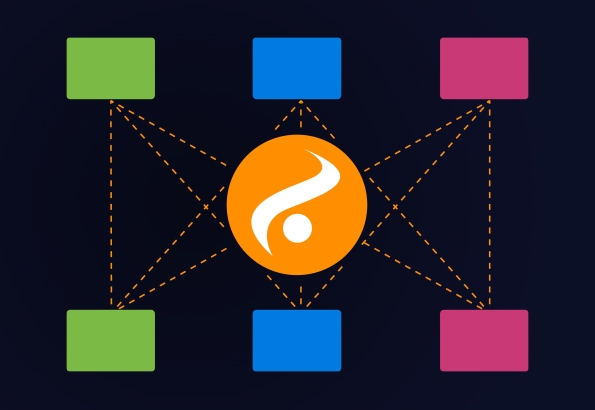Advanced Intelligent Products
Empowering Intelligence Users
The Interoperability Challenge
Amid the ever-increasing need to exchange information within the global marketplace, IT interoperability issues created by incompatible data types and formats across multiple systems exhaust valuable resources and impact schedules. The resulting lost opportunity and revenue can quickly become catastrophic pain points for IT budgets and resources. In order to create and maintain a coherent and secure information environment where essential data is available to the requisite applications and users, Enterprise IT managers face challenges to maintain interoperability with legacy enterprise applications, integrate IT systems from nonnative enterprises following buy-outs or mergers, and interface with external customer and supplier IT systems.
The Syndeo Solution
Working in data environments with complex interoperability needs, BAI’s AET Division has developed an adaptable, cost-effective solution in Syndeo—a multiple-input, high-throughput software-based information interoperability engine supporting both intra- and inter- enterprise information exchange between enterprise data and stovepiped or legacy nodes such as end user applications, unique or one-off information systems, databases, etc.
Syndeo combines data gateway functionality with protocol and message format conversion, transparently creating a real-time data interface between disparate nodes. Received data can be passed to Syndeo channels for customized profiling, where customer-defined data formats and rules are implemented to securely route and deliver data in the destination node’s native data format.
Syndeo
Syndeo’s interoperability solution engine provides an enterprise with seamless information flow between dissimilar information systems to achieve reliable information interoperability, using the capabilities detailed below.
Download Syndeo Pricing GuideProfiling
Syndeo’s information profiling capability, captured within channels, implements customer defined rules evaluating data content which drives data format and content delivery to defined nodes. The profiler rules engine supports standard Boolean operators and custom Java and JavaScript for rule development and action definition. Examples of data type profiling are XML documents, email to include attachments, meta data, flat text files, etc.
An intuitive user interface provides drag and drop development of profiles and rules. Built-in translators can convert data formats, amplify information content, call external modules and/or executable for such tasks as data validation, and identify destination nodes based upon matching profiles. profile rules can be developed to assist in customer unique enterprise enforcement of data protections such as the labeling of Private Health Information (PHI), Private Identifiable Information (PII), private financial data, Intellectual Property (IP) and security labels.
By applying customized, protected information rules, Syndeo can profile incoming data for protected information and, when identified, ensure it is appropriately marked within the destination node. The profiling rules can also be used to block data from certain locations based upon content security labels or other message factors. The Syndeo profile allows for content examination and meta-data to make different types of decisions. Another example is to use a profile for key word checking and routing, examining message content for certain words of interest and disseminating data based on the results. Metadata can also be used to profile messages to certain destinations, format conversion processes or system routing capabilities.

Routing
Syndeo, supports a variety of message routing methods. Its message store and forward capability supports systems that lack a persistent presence, allowing messages to queue and then be delivered when the destination system comes on-line. Syndeo generates message elements such as time of day, source channel and message format, and other key elements in determining a destination route. Syndeo also employs Apache Camel routing in conjunction with the product’s ActiveMQ brokers. In this instance messages are routed based upon user defined criteria between queues and topics. Either formatted or free text messages can be routed, whether in military messages, healthcare data, financial data or any other machine type data environment.

Data Conversion
Syndeo’s gateway function converts messages between enterprise environments from one format to another utilizing a variety of customized methods. For example, in one real-world implementation Syndeo serves as a bidirectional gateway to convert a legacy system’s structured text-based man/machine readable messages to an XML based schema used as a communications standard in present-day enterprise tools and applications. In another use case, a bidirectional gateway converts SMTP email messages between legacy man/machine readable test messages and XML formats; inbound email messages can be routed and format converted based upon an email address or contents of the message body.
In complex information environments, the full power of Syndeo’s data conversion becomes apparent when multiple uniquely formatted data streams are received and evaluated to determine route and delivery destination. Once a new information sources format is defined and captured within a channel, the source’s data becomes available for routing evaluation and delivery to all other defined channels in the destination channel’s unique format. Eliminating the need to write unique one to one stovepiped interfaces bet

Topic Based Pub/Sub
As an alternative to receiving data via Syndeo channels, Syndeo also includes an Enterprise Service Bus (ESB) for Topic based identification and dissemination of data. This queue and topic based publication/subscription (Pub/Sub) capability is accessible by customer applications and information systems for specific topics of interest. Unique organizational or project-based topics can be created for a particular team, data type or customer, eliminating dissemination of unneeded data and reducing message clutter and information overload. Automatic enrollment into specific topics of interest is supported by associating Access Control Lists (ACLs) with specific topics. Based upon Profiles-based data evaluation and destination node authorizations delivery of content can be stopped before data spillage occurs on an unauthorized node.

Data Encryption
Protecting sensitive data by encryption is of particular importance when the information may be traveling between enterprises where information security cannot be guaranteed. When data encryption is required, the Syndeo applies a native FIPS 140-2 compliant cryptographic module for the encryption and decryption of sensitive data. For added client security the standard Syndeo cryptographic module can be easily replaced with a specialized customer-provided module.
